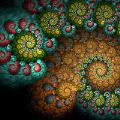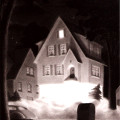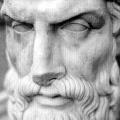
DMT-Nexus member

Posts: 459 Joined: 19-Jul-2012 Last visit: 21-Dec-2025
|
One of my favorite authors Oliver Sacks passed away this weekend. He wrote several books dealing with hallucinations, himself ingested several hallucinogenic drugs in order to attempt to personally understand what these people might be going through. Quote:Oliver Sacks, the neurologist and acclaimed author who explored some of the brain’s strangest pathways in best-selling case histories like “The Man Who Mistook His Wife for a Hat,” using his patients’ disorders as starting points for eloquent meditations on consciousness and the human condition, died on Sunday at his home in Manhattan. He was 82.
The cause was cancer, said Kate Edgar, his longtime personal assistant.
Dr. Sacks announced in February, in an Op-Ed essay in The New York Times, that an earlier melanoma in his eye had spread to his liver and that he was in the late stages of terminal cancer.
As a medical doctor and a writer, Dr. Sacks achieved a level of popular renown rare among scientists. More than a million copies of his books are in print in the United States, his work was adapted for film and stage, and he received about 10,000 letters a year. (“I invariably reply to people under 10, over 90 or in prison,” he once said.)
Oliver Sacks in 2001.An Appraisal: Oliver Sacks, Casting Light on the Interconnectedness of LifeAUG. 30, 2015
Books of The Times: Review: Oliver Sacks Looks at His Life in ‘On the Move’APRIL 27, 2015
Oliver SacksBooks of The Times: Musicophilia: Tales of Music and the Brain - Oliver Sacks - Book ReviewNOV. 20, 2007
Dr. Sacks variously described his books and essays as case histories, pathographies, clinical tales or “neurological novels.” His subjects included Madeleine J., a blind woman who perceived her hands only as useless “lumps of dough”; Jimmie G., a submarine radio operator whose amnesia stranded him for more than three decades in 1945; and Dr. P. — the man who mistook his wife for a hat — whose brain lost the ability to decipher what his eyes were seeing.
Describing his patients’ struggles and sometimes uncanny gifts, Dr. Sacks helped introduce syndromes like Tourette’s or Asperger’s to a general audience. But he illuminated their characters as much as their conditions; he humanized and demystified them.
In his emphasis on case histories, Dr. Sacks modeled himself after a questing breed of 19th-century physicians, who well understood how little they and their peers knew about the workings of the human animal and who saw medical science as a vast, largely uncharted wilderness to be tamed.
“I had always liked to see myself as a naturalist or explorer,” Dr. Sacks wrote in “A Leg to Stand On” (1984), about his own experiences recovering from muscle surgery. “I had explored many strange, neuropsychological lands — the furthest Arctics and Tropics of neurological disorder.”
His intellectual curiosity took him even further. On his website, Dr. Sacks maintained a partial list of topics he had written about. It included aging, amnesia, color, deafness, dreams, ferns, Freud, hallucinations, neural Darwinism, phantom limbs, photography, pre-Columbian history, swimming and twins. Read more @ http://www.nytimes.com/2...-brains-quirks.html?_r=0Creator help me live in a way that will make my ancestors proud.
|
|
|
|
|

DMT-Nexus member
Posts: 2151 Joined: 23-Nov-2012 Last visit: 07-Mar-2017
|
Oliver Sacks was one of the three big motivators that pushed me to pursue neuroscience, both academically, and professionally (one of the others was psychedelics, a fact I feel that he would have appreciated). Reading 'The Man Who Mistook His Wife For A Hat,' and being really blown away, for the first time, by the mystery that was consciousness and perception was a transformative experience for me. That feeling of wonder has never really let up. Rest In Peace ~ND "There are many paths up the same mountain."
|
|
|

☂

Posts: 5257 Joined: 29-Jul-2009 Last visit: 23-Dec-2025 Location: 🌊
|
He's been on the book list for a while now but I've only ever read interesting bits and pieces of his work. An old cognitive science professor originally recommended him. Sad to see him go but it sounds like he lived a very full life RIP Oliver <3
<Ringworm>hehehe, it's all fun and games till someone loses an "I"
|
|
|

DMT-Nexus member

Posts: 5267 Joined: 01-Jul-2010 Last visit: 13-Dec-2018
|
He will be sorely missed. I've been avoiding this thread for a few days in an act of repression. His writing is so delightful, and he is incredibly insightful. Reading his books become addictive. I remember writing him once about DMT. I don't remember hearing back. My father has a story where Sacks was in his office while the receptionist was reading his book by chance. Musicophoelia is a must read for musicians, and a highly recommended read for most Nexians. I remember liking Hallucinations as well, perhaps a better fit for being a must read for Nexians. I've been meaning to read his recent Island of the Colorblind as well. Also the movie "The Music Never Stops" was based on his book and a true story of his patient. It is fantastically good, and highly recommended. "Science without religion is lame. Religion without science is blind" - Albert Einstein
"The Mighty One appears, the horizon shines. Atum appears on the smell of his censing, the Sunshine- god has risen in the sky, the Mansion of the pyramidion is in joy and all its inmates are assembled, a voice calls out within the shrine, shouting reverberates around the Netherworld." - Egyptian Book of the Dead
"Man fears time, but time fears the Pyramids" - 9th century Arab proverb
|
|
|

DMT-Nexus member
Posts: 333 Joined: 07-Nov-2009 Last visit: 06-Oct-2022
|
I too recommend Musicophillia for anyone interested in the mind, or anyone interested in music. Its full of fascinating stories and anecdotes. RIP Oliver Sacks. You've inspired, healed, entertained and intrigued millions. I am a piece of knowledge-retaining computer code imitating an imaginary organic being.
|
|
|

DMT-Nexus member
Posts: 97 Joined: 30-Nov-2014 Last visit: 23-Dec-2023
|
I remember during my first semester at university, my philosophy professor mentioned “The Man Who Mistook His Wife for a Hat” and I have been meaning to read it for a long time now. To be honest, I have nearly forgotten about it.
The topics that were referenced (inability to recognize faces, the nature of perception, etc) is/was really surprising to me and got me curious about things that can bend or manifest new perception.
It seems like his insatiable curiosity has had an impact on some members here, and likely many more abroad. I hope that his legacy will continue to inspire and intrigue.
|
|
|

DMT-Nexus member
Posts: 327 Joined: 23-Aug-2010 Last visit: 30-Mar-2024 Location: Sovereign nation of marz
|
Man this is truly sad I didn't even hear about this yet may he rest in peace💙 "PSYCHEDELIC DRUGS DON'T CHANGE YOU- THEY DON'T CHANGE YOUR CHARACTER-UNLESS YOU WANT TO BE CHANGED THEY ENABLE CHANGE THEY CAN'T IMPOSE IT...."
-ALEXANDER SHULGIN
It's time to move on to the next step in the psychedelic revolution
|
|
|

DMT-Nexus member
Posts: 176 Joined: 27-Jun-2015 Last visit: 28-Apr-2020
|
Muskogee Herbman wrote:One of my favorite authors Oliver Sacks passed away this weekend. He wrote several books dealing with hallucinations, himself ingested several hallucinogenic drugs in order to attempt to personally understand what these people might be going through.
There have been some really interesting discussions about Oliver since his death. I think his reasons for experimenting with psychedelics and with other psychoactives were complex. Partly he was curious, partly he was obsessive, and partly in his own estimation, he was self-medicating. And yes, partly he wanted to understand what his patients might be experiencing. I think that many of us, largely male, explorers of psychoactives, may have something of that mix of motives that Oliver had. Oliver, by his own estimation, was obsessive. He self-described himself to Steve Silberman as on the Tourettic spectrum. He was very shy, he suffered trauma as a child during WWII and he was alienated from his family and early social milieu by his sexual orientation. He only came "out" quite recently. Some of his experiments with psychoactives are written about here: http://www.newyorker.com...2/08/27/altered-states-3 Of particular note on the self-medication front is this quote from the above article: Quote:Augusta said that, whichever view was correct, taking mind-altering drugs every weekend, alone, and in high doses, surely testified to some intense inner needs or conflicts, and that I should explore these with a therapist. In retrospect, I am sure she was right, and I began seeing an analyst a year later. Oliver was also quite reckless, which many of us are in varying degrees. He was also a very sensitive, compassionate, thoughtful, and immensely well read and imaginative person. His rigorous intellect and his compassionate imagination and humanism come across in all his work and it is that combination that makes him such a delight to read or listen to. There are so many fascinating threads to address when I think about him that I could go on forever writing about them. I'll stop here, however. But. But. I just want to throw in one little mention of artane, a true deliriant, that he experimented with. You can see mention of it in his article. It is in the class of Muscarinic Antagonists.
|